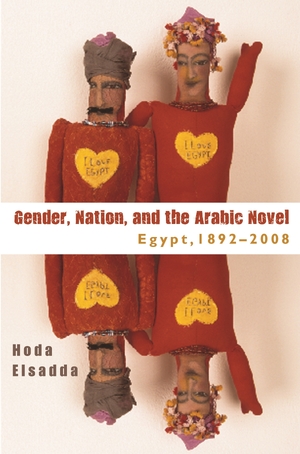"Elsadda brilliantly upends standing perceptions of the Arabic novel. Nuanced and incisive, she dissects over a century of Egyptian Arabic novels, demonstrating that the liberal national elite’s gendered imaginations of the nation shaped the literary canon. She convincingly argues that national political projects must imagine themselves through cultural production and that both are systematically shot through with gendered constructions of power."—Suad Joseph, editor of Gender and Citizenship in the Middle East
"A sophisticated and thorough examination of over a century of literary discourse, it will have to be taken into consideration in understanding Egyptian literary history."—Rasheed El-Enany, author of Naguib Mahfouz: In Pursuit of Meaning
Description
From the end of the nineteenth century and into the twenty-first, Arabic novels and Egyptian fiction have experienced a rebirth as the literary landscape has become more diverse and inclusive. Writing has moved beyond the established themes in the national canon to engage with neocolonial discourses in the globalized world. In Gender, Nation, and the Arabic Novel, Elsadda revisits the modern Arab literary tradition from a gender lens, questioning the process of inclusion and exclusion. In doing so, she recovers literary voices that have been marginalized because they did not fit into the ideological blueprint of the cultural elite.
Exploring the literary narratives of prominent authors such as Naguib Mahfouz, Latifa al-Zayyat, and Mohammed Hussein Haikal, Elsadda interrogates the representations of femininity and masculinity in modern Arabic fiction. With a New Woman figure in Arabic literature, she distinguishes between those who support or critique modernist nation building; she also looks at the construction of the New Man and the texts that feature men who represent desirable and undesirable characteristics for the modern nation. By creating a dialogue with a broad range of novels, literary criticism, and social commentaries of men and women, Elsadda’s analysis of literary masculinities goes beyond the limitations of Arabic novels and can be applied to all third world literary works that have been described as national allegories.
About the Author
Hoda Elsadda is professor of English and comparative literature at Cairo University. She previously held a chair in the Study of the Contemporary Arab World, in the School of Languages, Linguistics, and Cultures at the University of Manchester. She is a founding member and current chair of the Board of Trustees of the Women and Memory forum, a nongovernmental research center in Egypt that focuses on gender issues in Arab cultural history.
6 x 9, 304 pages
July 2012

